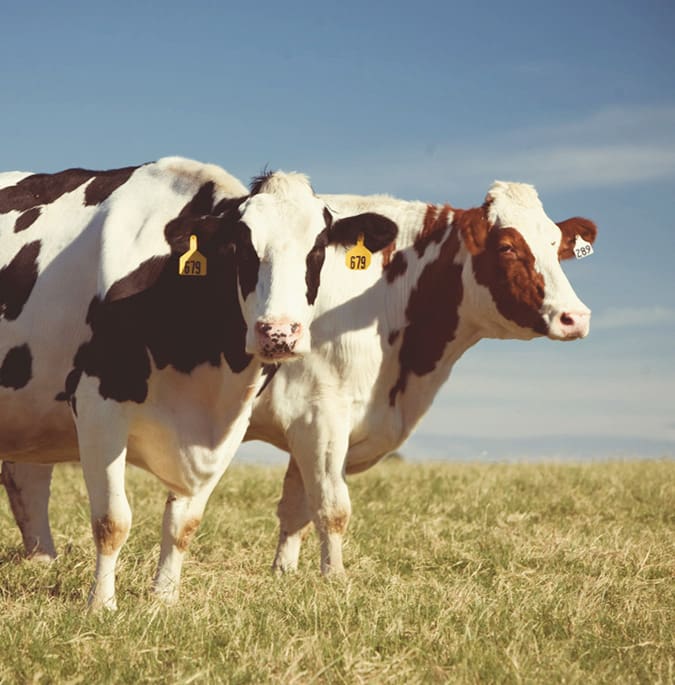Farm Policy
& Risk Management
NCFC strongly supported passage and implementation of the 2018 Farm Bill to meet the needs of U.S. producers, ensure the long-term viability, health and competitiveness of U.S. agriculture, and to help meet domestic and international food, fiber, feed, and energy needs.

Farm Policy
NCFC is closely following the appropriations process in Congress. Programs that are authorized but never funded are of no help. Likewise, programs that are deprived during the appropriations process never reach their full potential.
Policy Resolutions
- Maintain and promote farmer cooperative eligibility and access under USDA and other federal programs and initiatives.
- Maintain support and funding for USDA farm bill programs consistent with NCFC principles, including resources to provide appropriate staffing across USDA to ensure programs can be administered properly and timely.
- Support efforts to maintain a budgetary baseline, thus minimizing potential budget cuts, to ensure adequate funding for policies and programs to meet the needs of U.S. agriculture.
- Maintain and promote a needed income safety net for producers, while helping to meet the food, fuel, and fiber needs of consumers at home and abroad.
- Support dairy policy that reduces extreme volatility and maintains a viable and effective domestic safety net for producers with a focus on protecting the operating margin experienced by producers as reflected by milk price and input costs.
- Support a responsive safety net, together with adequate funding, that incorporates improved, comprehensive risk management tools and programs for producers and their cooperatives.
- Support sugar policy that ensures farmers have a strong safety net. Oppose actions that would weaken the safety net.
- Support farm legislation that includes provisions that require USDA to maintain the operation of the Commodity Credit Corporation and the Marketing Assistance Loan during periods of a lapse in government funding.
- Provide for strong, meaningful, and affordable crop insurance protection and oppose any changes to crop insurance that would discourage producer participation or undermine private sector delivery, including limiting program eligibility through means testing.
- Support strengthening the specialty crop industry through viable and economical systems that enhance the value, ensure the safety, and promote consumption of specialty crop products.
- Support policies that enhance the ability of U.S. farmers to produce food, fuel and fiber using technologies that are based on proven science, including biotechnology.
- Support and maintain expanded pest and disease research programs, improved exclusion, and eradication programs, and continue to protect the tools which are vital in these efforts.
- Increase federal funding to protect against the introduction of pests and pathogens at ports of entry.
- Support federally authorized and producer supported research, marketing and promotion programs, commonly known as check-offs, which are established and approved in referenda by producers who fund the programs with their own money.
- Support sustainable business practices through an integrated approach to economic viability for farmers and their co-ops, environmental stewardship, and community well-being.
- Support the maintenance of a vaccination bank or repository for use in time sensitive disease control.
- Support increased federal investment in agriculture and food-related research through the farm bill and other federal funding provisions with emphasis on industry priorities, public private partnerships, and ensuring farmers and ranchers have access to the scientifically rigorous tools and information they need to:
- Maintain and promote needed agricultural research, including mechanization and automation.
- Improve the ability to measure, collect and benchmark metrics to continually reduce agriculture’s impact on the environment; and
- Provide resources to help agriculture adapt to changes in weather conditions, pest and disease management and improved cropping systems.
- Build climate resilience, mitigate environmental impacts, and increase the productivity of their land.
- Establish policies that foster the development of private sector markets for GHG credits and provide the appropriate role for government in that development. The public sector should ensure that verifiable reductions occur and provide producers with the technical support needed to participate voluntarily.
- USDA’s Climate Hubs should be formally codified and expanded so that they can regularly engage stakeholders and prioritize vital research.
Commodity Markets
As processors and marketers of commodities and suppliers of farm inputs, cooperatives are commercial end-users of over-the-counter derivatives (commodity swaps) and exchange-traded contracts. Cooperatives use futures, options, and swaps to effectively minimize risks associated with price movements in commodities, such as grain, dairy products, livestock, energy, and fertilizer. In addition, derivatives give cooperatives the ability to offer customized products to producers that help them better manage their risk and returns and provide more predictable profitability.
Policy Resolutions
- Promote improved comprehensive risk management tools and programs for farmers.
- Support efforts to ensure Commodity Futures Trading Commission regulations do not impair farmer cooperatives’ ability to use and provide their members essential risk management tools.
- Support the development of risk management products to ensure a reliable and affordable supply of fertilizers and other inputs.
- Support initiatives that promote the ability of farmer cooperatives to offer forward contracts and risk- mitigation tools to producers, particularly in times of high crop and crop input prices.
